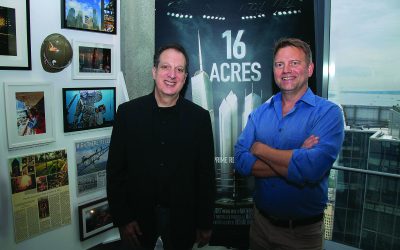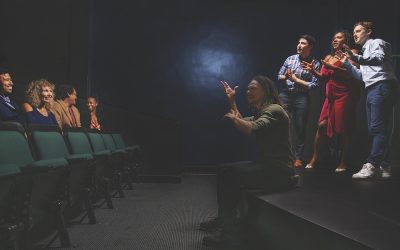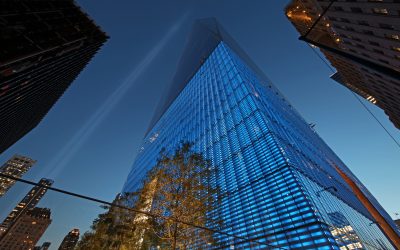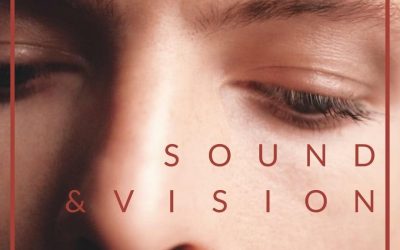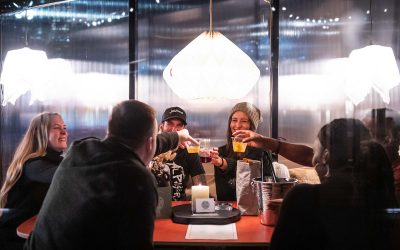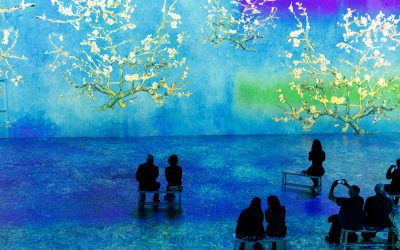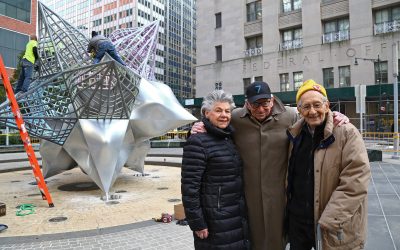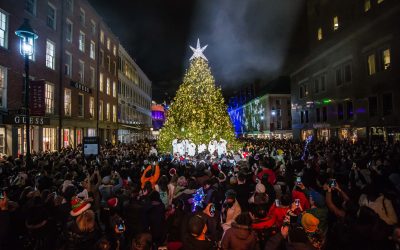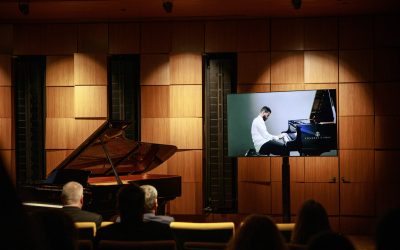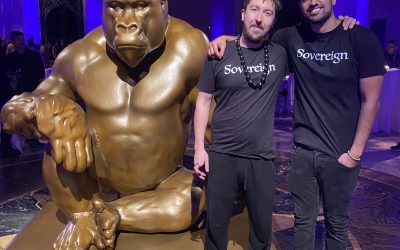Dick Gregory began his career as a comedian while serving in United States Army in the mid-1950s. His first big break came in 1961, when Hugh Hefner saw him perform and went on to hire him to work at the Chicago Playboy Club. An appearance on Tonight Starring Jack Paar followed not too long after, leading to countless other television bookings.
While “stand-up comedian” is how most people describe Dick Gregory, it is only one of the career paths he has excelled within. He was very active within the Civil Rights Movement, marching in Selma, and also being one of the notables involved with the National ERA March. He has written more than a dozen published books. He has appeared in movies and television shows as an actor, including Wonder Showzen. He has hosted radio programs. Dick has also thrived within the health food industry, founding Dick Gregory Health Enterprises, Inc. in 1984.
At 85 years young, Dick remains active as ever and will be playing at the B.B. King Blues Club & Grill alongside Richard Pryor’s main writer Paul Mooney on Feb. 10. Dick spoke to Downtown by phone about his history with New York, and some highlights of that chat are posted below. More on Dick — a very smart, talkative and entertaining man, to say the least — can be found at www.dickgregory.com.
When did you play New York City for the first time? What do you remember about it?
Dick Gregory: I was scared, not because of show business, but you know coming out of St. Louis and you hear about New York. I get there and I see all these fruit stores. “Hey man, where is the Mafia? Where is the gangsters?” I say, “Wait a minute, every time you walk down the street, every corner there is a fruit store.” That was the most wildest thing in New York. It is different now because you’ve got health food stores…But then every corner, there is three or four stores with people going in buying fruits and that was my biggest thing…I still can’t understand that today, every corner there is a newsstand…Wait a minute, newspapers? I never really heard anything where everybody in New York goes to buy a newspaper every morning. (laughs)
Do you remember the first club that you played at in New York?
DG: Oh yeah, The Blue Angel, probably one of the most romantic clubs in the world. I mean, that was the elite, that was like the Rolls Royce of clubs. So you go there, you see what I didn’t understand…What I found out in New York, those type of clubs people go out to spend money…They don’t eat nothing at no damn nightclub, you go to a restaurant and eat…The average bill at The Blue Angel was about, you know, maybe $2,000, because they came in there to drink. They didn’t come in to eat or get a sandwich…I hadn’t seen anything like it in my life.
You mentioned before about people eating fruit and eating healthy. New York City is very much known as one of the first places to advocate for eating healthy and eating organic. Where did your interest in that come from in the first place?
DG: Well, let me say this…I thought good nutrition is whatever you eat did not run out till you’ve had enough. Bad nutrition is when say you were still hungry. Now even back then, wasn’t nobody talking about organic, health food stores, not just in New York but nowhere…Let me tell you one of the myths about “organic.” People with little money say, “Oh I wish I could eat organic but it is too expensive.”
Well, here is what is “expensive” is: I’ve got a 20-year old car. I’d use three times more gasoline in a new car…And so “organic” is, “I am used to eating ten potatoes and now I am eating organic, all I have to eat is two and I get more nutrition with the organic than I did with the 10.” So the one thing that the industry has done a good job of is convincing people, you eat less and you get more…
Also, remember I am 85 years old. So when I was younger, you know nobody understood nothing about nutrition…I do a joke way back in the day, I said, “I go home to St. Louis, my drugged-out cousin, he is sitting on the park bench, cocaine dust on his nose, powder all over his coat, and I wake him up and say, ‘Hey man, here is an apple.’ He says, ‘Is it organic?’”
(laughs) Right.
DG: Now here is what most folks don’t know. If I am sitting with you and I cut my wrist, I bleed, right?
Sure…
DG: Once you cut an apple and people go get fruit salad, once that fruit salad is cut in the morning, it bleeds just like you do. So by the time you eat it, it ain’t got no nutrition in it and that is why when you go to the better restaurants in the world. Or in New York City, they make the salad right there at the table…
I used to drink a fifth of scotch every day, so after I changed my lifestyle and I didn’t drink, I was called a health nut. I used to smoke a full pack of cigarettes and nobody called me a health nut…so you can have some friends and you go in a bar, and you just pick a wine and drink it like the cowboys used to do. Just drink it down, give me another one then you change your lifestyle. Then you can go in and get you a six-ounce bottle of calcium and you can drink it down and they say, “You ain’t supposed to drink that much.” I say, “Nobody told me that when I was drinking whiskey.” (laughs)



